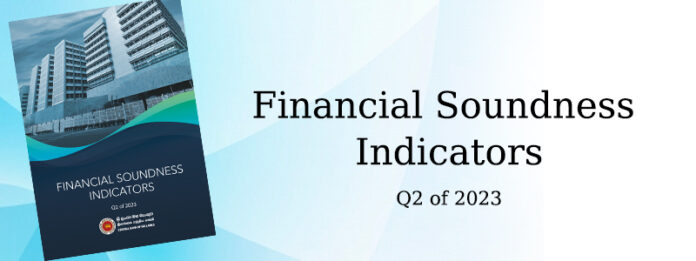By: Staff Writer
Colombo (LNW): The Central Bank has released ‘Financial Soundness Indicators’ as a key tool for communicating the performance of banks and finance companies supervised by the Central Bank.
The publication includes key ratios and financials used in policy analyses for identifying strengths and vulnerabilities in the financial system.
The publication presents sectoral financial information such as assets, liabilities, earnings, profits and capital whilst providing key ratios associated with each category. This publication will be a useful and reliable source of reference for those who are interested in the performance of major financial institutions in Sri Lanka.
The Financial Soundness Indicators publication is available in electronic form and can be accessed through the Central Bank website:
Maintaining a sound and adequately capitalized banking system as well as addressing banking sector vulnerabilities are crucial elements to safeguard financial stability, International Monetary Fund report revealed.
Bank vulnerabilities built up during the pandemic as forbearance measures on loan repayment and provisioning were introduced.
External financing of the public sector had dried up earlier, strengthening the domestic sovereign-bank nexus, with public sector exposures accounting for more than 40 percent of bank assets.
Although backward-looking reported capital ratios have remained stable, and high net interest margins have so far allowed banks to absorb rising impairments (Figure 5), the current crisis will continue to crystallize these vulnerabilities.
Banks are likely to face ongoing credit losses from sharply rising NPLs, while the restructuring or repayment in rupees of FX-denominated government securities (around 5 percent of bank assets) is expected to result in losses, worsen severe FX liquidity shortages, and create currency mismatches.
The large state-owned banks have, in addition, substantial FX loans to the government and SOEs, which are expected to be restructured or repaid in Rupees.
At the same time, the cost of rupee funding remains well above CBSL policy rates (average rates on new deposits reached 23 percent in 2022
No approval is sought or recommended for the exchange restriction arising from Sri Lanka’s net debtor position under the Asian Clearing Union payment arrangement, as such arrangements are considered inherently discriminatory.
